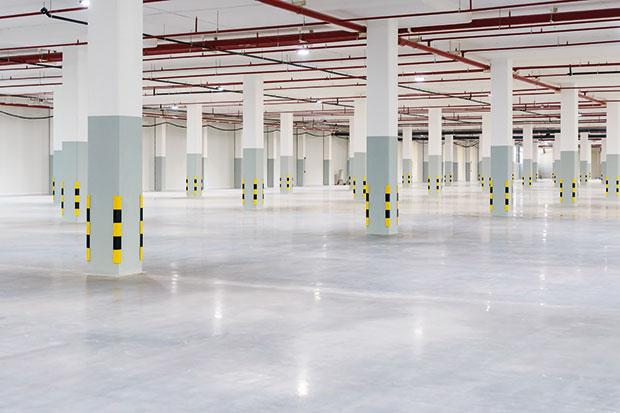More and more warehouse and bulk storage facilities are being built in the UK – in part due to the ongoing popularity of online shopping and the fulfilment demands this creates. But as warehouse capacity increases so does some of the dangers connected to it, including the risk of fire.
 Indeed, as more potentially combustible goods are stored in these buildings there has been a surge in the number of fires reported. This has been recognised by major insurers, who acknowledge that greater fire loading due to more goods being stored has been a contributory factor to rising financial losses from warehouse fires. For example, last year Zurich UK reported they had seen an eye raising increase of 26% in such fires between 2021 and 2022.
Indeed, as more potentially combustible goods are stored in these buildings there has been a surge in the number of fires reported. This has been recognised by major insurers, who acknowledge that greater fire loading due to more goods being stored has been a contributory factor to rising financial losses from warehouse fires. For example, last year Zurich UK reported they had seen an eye raising increase of 26% in such fires between 2021 and 2022.
To keep those working in warehouses safe and to help protect the valuable goods stored within them, passive fire protection is a critical consideration for any project and can make a significant difference to how businesses manage this risk.
The critical phase
Planning the best fire protection methods can be critical to ensuring that – should the worst happen – impact on property is minimised and operations can resume as swiftly as possible. Passive fire protection is a key factor, but this can be a complex area to get right. Not only must the right products be specified and installed correctly, but they must comply with stringent regulatory demands, as well as be easy to install so there isn’t a hold up to the build schedule.
Balancing demanding technical performance with project certainty starts at the design phase, where passive fire protection can be carefully considered for the requirements of a given building. This is becoming increasingly important because as the typical size of warehouses grow, they become more complex and require more technical detailing to ensure all potential fire resistance weak spots are identified early in the design process and the appropriate solution factored in.
Critically, this must include not only how to prevent the spread of flames, but also preventing heat radiation causing spontaneous combustion – particularly in areas where there is high fire loading due to goods stored. Ensuring the load bearing capacity of structural steelwork is also key, as the extreme heat of a fire can otherwise cause the structure to lose structural integrity and potentially cause the building to collapse.
A holistic approach
A good passive fire protection system should withstand the rapid increases in temperature caused by the heavy fire loading typically found in warehouses and also stop heat transferring throughout the facility and causing further damage. This allows for effective escape routes to be identified and even act as a life support system for the building until emergency services arrive.
Passive fire protection should therefore be considered as a holistic solution where different products are designed to work together to provide the most comprehensive protection. This requires specialist expertise to get right, in particular with respect to ensuring compliance with building regulations.
It’s important to balance regulatory compliance requirements with the commercial realities of any development. Time is money, and warehouses typically need to be built as quickly as possible without compromising safety or compliance.
Some passive fire protection manufacturers, such as Promat, offer full specification packages for those developing or refurbishing warehouses and bulk storage facilities. This typically includes detailed clauses that are aligned closely with the wider building design and intended use. This helps to ensure there is a turnkey solution bespoke to the individual needs of each project, with fire protection adapted to suit those specific needs.
Having been involved in hundreds of similar projects, manufacturers like Promat are in an advantageous position to advise on this aspect of the building design as they have experience from a broad range of projects in terms of both regulatory compliance but also practical challenges and how these can be solved efficiently with minimal impact to a projects critical path.
To make an enquiry, please email: Warehouses@promat.co.uk




Comments are closed.